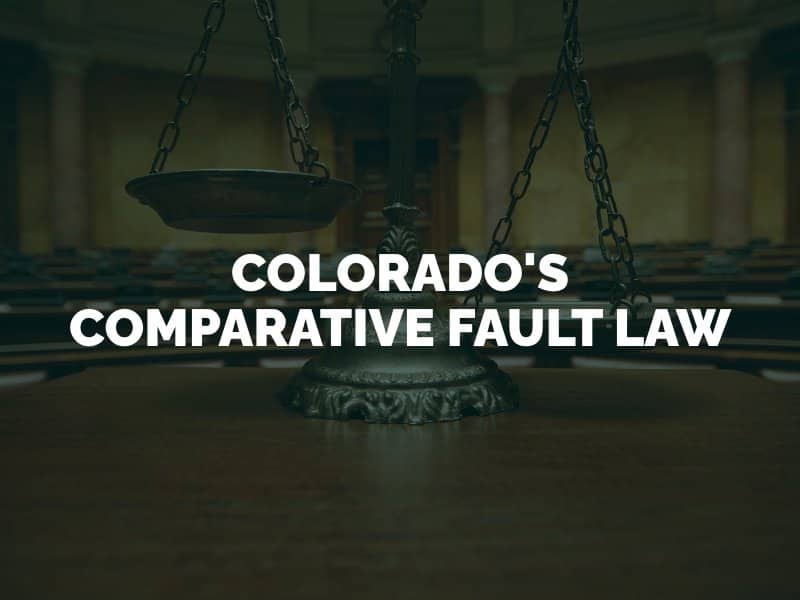If you get injured in an accident involving someone else’s negligence, such as a car accident or slip and fall, the legal doctrine of comparative fault may be brought up during your personal injury claim. This argument could reduce or even eliminate your financial award if you are found to have caused or contributed to your injury.

Comparative fault, also known as comparative negligence, is a legal principle that reduces the amount of financial compensation that an injured victim (plaintiff) can recover in a personal injury claim. It does this by allocating a percentage of the fault to the victim. Under this rule, if a plaintiff contributed to his or her injuries, the financial recovery available will be reduced by a matching amount. The defendant or at-fault party will be made to pay less in financial compensation since he or she was not 100 percent responsible for the plaintiff’s injury.
Comparative negligence still permits a plaintiff to recover partial financial compensation even if he or she contributed to the accident. A contributory negligence principle, however, is more strict. It states that if a plaintiff is found to have contributed to his or her injury in any regard – even to the slightest degree – he or she will be barred from making a financial recovery. Most states have left contributory negligence laws in favor of more plaintiff-friendly comparative negligence rules.
Colorado is a state that uses a comparative fault or negligence doctrine. This law is found in Colorado Revised Statutes Section 13-21-111, which states that contributory negligence will not bar recovery in any action brought to recover damages for personal injury or wrongful death, as long as the plaintiff’s negligence is not as great as the negligence of the defendant. If comparative negligence is proven, any damages awarded shall be diminished in proportion to the amount of negligence attributable to the plaintiff.
Colorado’s comparative negligence law is modified rather than pure. This means that a plaintiff can recover damages despite comparative negligence, but only up to a certain amount or percentage of fault. In Colorado, the limit is 49 percent. If a plaintiff is declared to be 50 percent or more at fault for the injury, the plaintiff will not receive any financial compensation. In a pure comparative negligence state, on the other hand, a plaintiff can be attributed any percentage of fault – even 99 percent – and still be eligible for compensation.
Under Colorado’s modified comparative fault law, with less than 50 percent of fault, your compensatory award will be reduced by an amount equivalent to your degree of negligence. For example, if a judge allocates 80 percent of fault to the defendant but the other 20 percent to you, your compensatory award would be diminished by a matching 20 percent. This would reduce a $50,000 verdict to $40,000.
It is important to hire a personal injury attorney in Denver if you believe you contributed to your accident. Your financial recovery could be dramatically reduced – or even taken away completely – if you are found to be at fault for your injuries. An attorney can help you fight against the comparative negligence defense by presenting evidence that shows the defendant is more to blame than you are, such as a police report or eyewitness statements. This can help you maximize your financial recovery.
For more information about how Colorado’s comparative negligence law might impact your personal injury claim, contact an attorney at Fang Accident Lawyers.